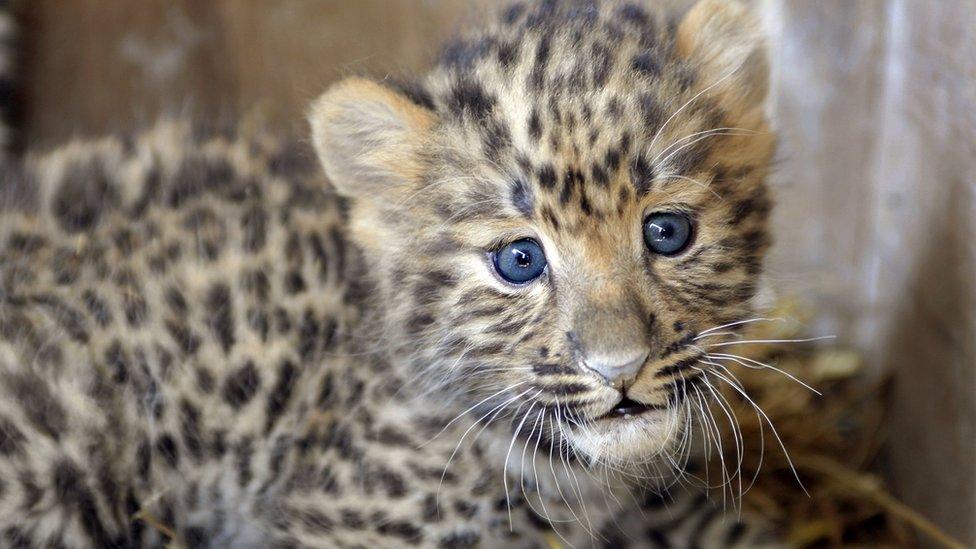Zoo hopes monkeys will breed to help save species
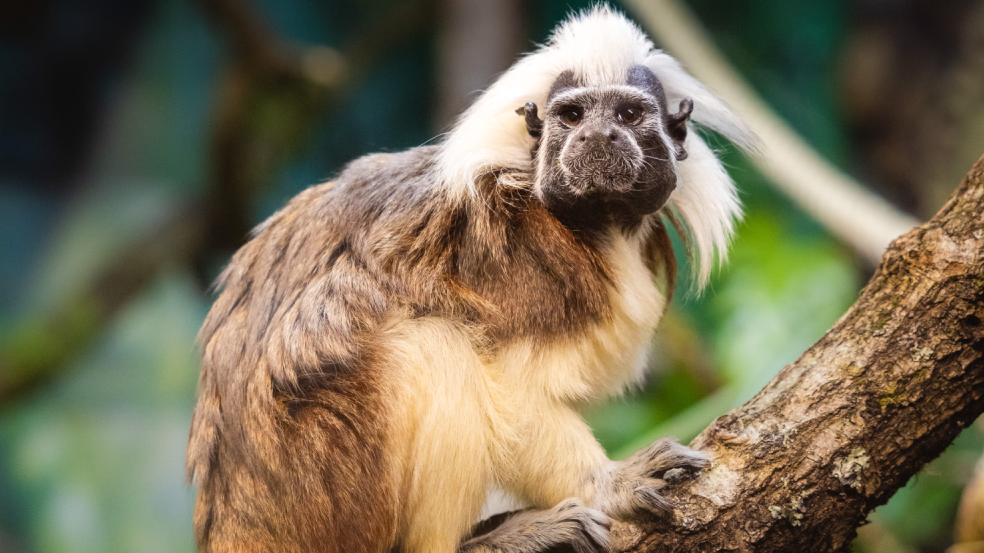
The cotton-top tamarins are under threat, and now found in just 5% of their original habitat in the tropical forests of north-west Columbia
- Published
They are a breed of rare monkey at serious risk of dying out altogether.
But a Pembrokeshire zoo and adventure park hopes that two cotton-top tamarins now living in its care can help protect the future of the species.
The pair, named Raquel and Raymond, have moved to Folly Farm on the recommendation of experts with the hope that they will mate.
There are only 2,000 adults left in the wild and they are on the critically endangered red list of the International Union for Conservation of Nature.
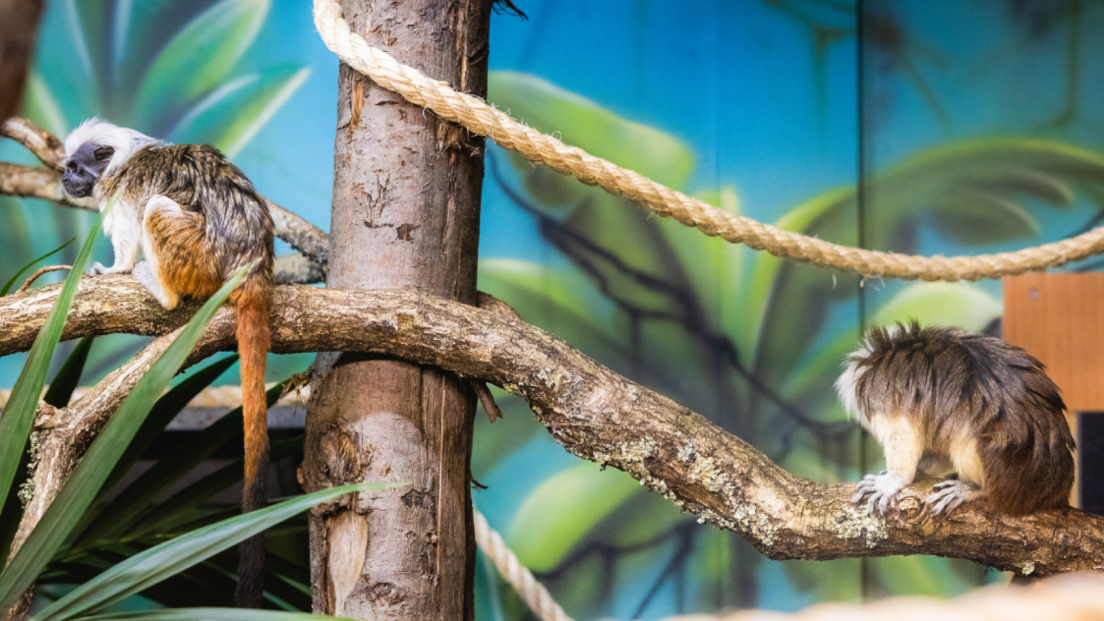
Monkey business: It is hoped that Raquel and Raymond will help ensure the survival of their species at Folly Farm
Zoo announces birth of rare tamarin monkey
- Published18 May 2024
Home help for the old sloths slowing down. Video, 00:01:25
- Published31 May 2021
Folly Farm, near Kilgetty, also hopes to educate visitors about their history and the struggles they face.
The tamarins, who have prominent white hair, are found in only 5% of their original habitat in the tropical forests of north-western Colombia, mainly due to large-scale deforestation.
"Unfortunately, where they live in the woods in South America, the habitat has disappeared," said Lee Sefton-Hearn, who works at the zoo.
"Also, people take the monkeys out of their natural habitat for things like science investigations and the illegal pet trade as well."
Folly Farm belongs to 36 European breeding programmes, and along with protecting endangered species, it believes in educating visitors about the history and challenges of animals.
Mr Sefton-Hearn said while everyone liked to look at the tamarins, it was important to explain problems in the wild.
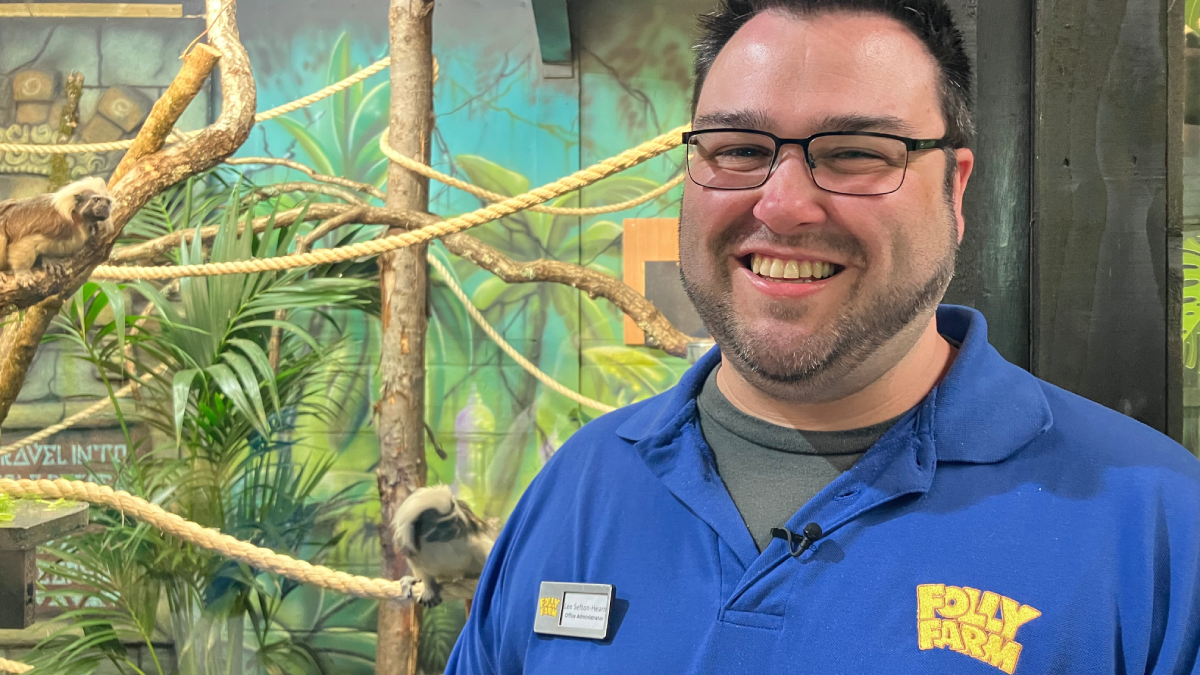
"Unfortunately, where they live in the woods in South America, the habitat has disappeared," says Lee Sefton-Hearn of Folly Farm
He said they did a significant job as seed dispersers when they ate fruit.
"Without them in the wild, we're losing important things for the ecosystem as well," he added.
Folly Farm said the pair had already been seen grooming each other, which it called "a clear sign of trust and affection".
Keeper Kim Cartwright said: "They're an adorable addition but more importantly, being such a rare species in the wild, it's an opportunity to educate our guests about these animals and the plights they face.
"They're settling in really well so far and are so much fun to watch because they’re so active.
"We hope they become a breeding pair and we can one day welcome the pitter patter of tiny primate infants - which will be excellent news for the critically endangered species, as well as exciting for us and our visitors."
Related topics
- Published24 May 2023
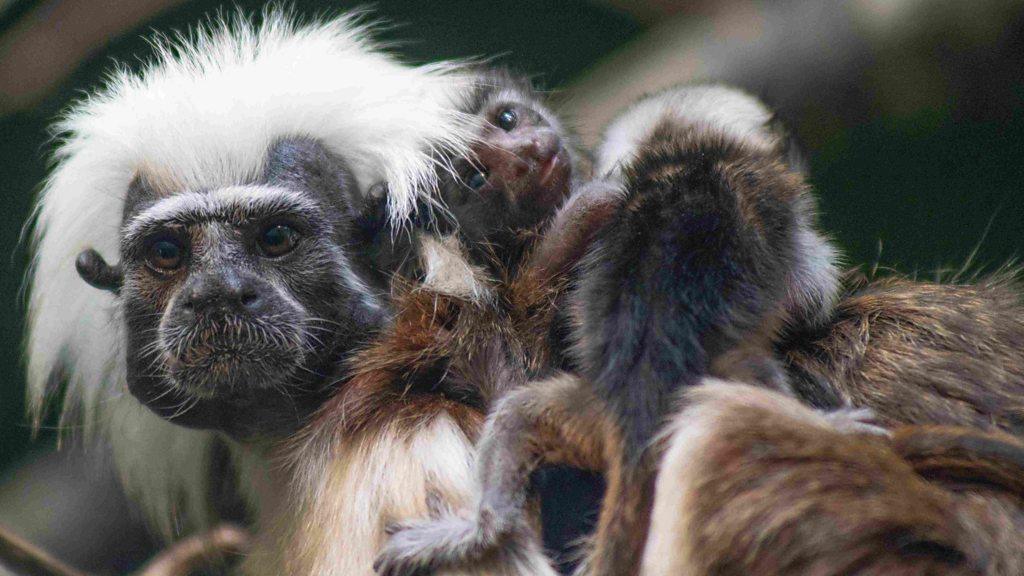
- Published1 December 2023
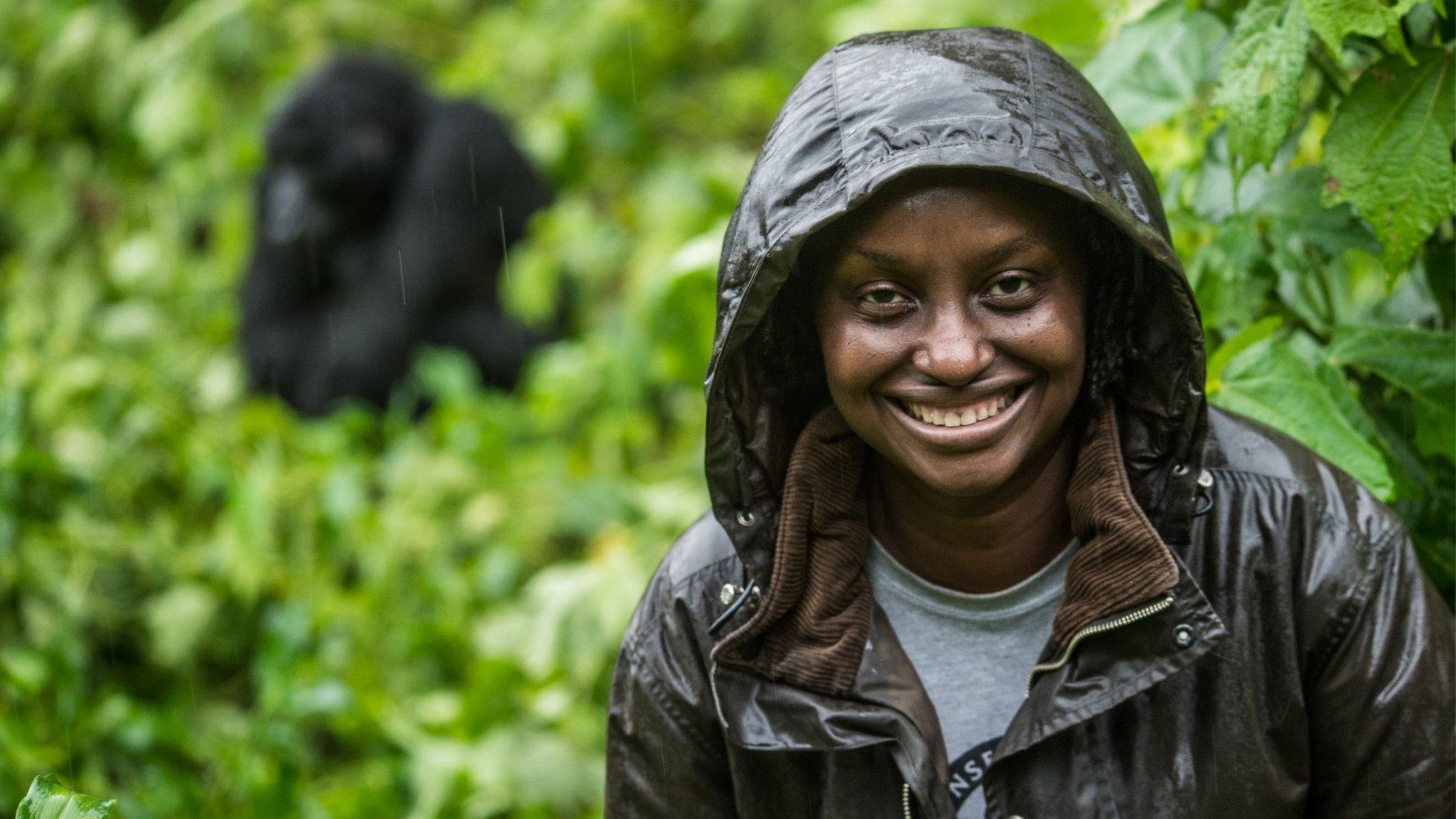
- Published18 October 2024
